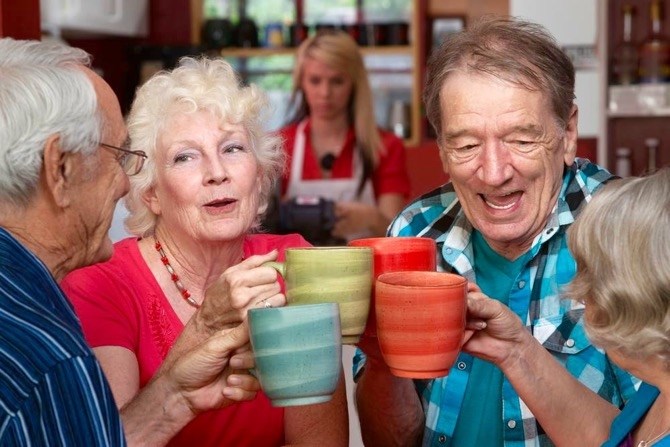
Image Credit: Shutterstock
June 16, 2021 - 7:30 AM
The deadline for the provincial government to create a voice for seniors in long term care passed more than a decade ago.
So a new drive is underway to get current Health Minister Adrian Dix to take up the challenge and create a province-wide association of family councils.
“The idea of not having family members contribute to policy decisions is just ludicrous,” Kim Slater, chair of the Vancouver Island Association of Family Councils, told iNFOnews.ca. “The whole COVID thing has exposed weaknesses in the system that family councils have been trying to point out for years. This has brought it to a head and something has to happen.”
The provincial government recommends and even encourages every long term care home to have a family council, made up of residents and their contacts.
“Councils exist to engage the resident community in collaborative activities which will advance the quality of life for residents,” a Ministry of Health website states. “A family and/or resident council is also self-led, self-determining and democratic.”
In reality, many care home operators either discourage residents and their advocates from getting together or take control of such meetings, stifling contributions from participants, Slater and others say.
Slater’s association includes representatives from care homes throughout Vancouver Island but there’s no such organization anywhere else in the province.
That’s what he’s trying to change and he’s now getting help from residents throughout the province, including members in Salmon Arm and Summerland representing the Interior Health region.
“If family members are involved in policy decisions – at least involved in the discussion – the bottom line is, it’s better for residents,” Slater said.
He gave the example of the government setting up a $10 million EquipCare program last year to create infection control systems in long term care homes during COVID. That was done in conjunction with the B.C. Care Providers Association that represents private care home operators.
“We sent a letter to Minister Dix saying, congratulations for the program, it’s very much appreciated, but we really wish you had asked us,” Slater said. “If you asked us, we would have pointed out that there are family members who are essential caregivers who have been in facilities every day, feeding their loved one or bathing their loved one or helping exercise those with mobility issues. They are part of the care team and we need to find a way to get them in safely to continue to do that because, not only is there a particular loved one who is going to suffer but, because the staff now have to pick up all those extra things that family members have been doing, they’re going to be stretched even more thinly.”
His association never got a response of any kind from the Ministry of Health.
In December 2009, provincial Ombudsperson Kim Carter released a report called The Best of Care: Getting It Right for Seniors in British Columbia (Part 1).
It recommended that the province “entrench an expanded role for resident and family councils in legislation or regulation that applies to all residential care facilities in British Columbia,” and that be done by March 31, 2010.
That still hasn’t happened.
Last fall, Seniors Advocate Isobel Mackenzie made the same recommendation after more than 13,000 people responded to a survey on long term care homes.
READ MORE: Seniors advocate fighting to improve visits in long term care homes despite surge of COVID-19 cases
She estimated it would cost as little as $500,000 for the province to set up a provincial association of family councils.
That’s not happening.
Slater is trying to change that through a groundswell of public support but, at this point, has little or no funding for that effort, although a North Vancouver woman, Kathie Boyd, started a GoFundMe campaign earlier this week trying to raise at least $5,000 to help the cause.
Slater will continue meeting with committee members with the idea of launching an appeal for a massive letter writing campaign to the Ministry of Health to get it to finally act on Carter’s 2009 recommendation. He hopes to get that campaign going this summer.
In the meantime, people can get information on the Vancouver Island Association of Family Councils website here or contribute to the GoFundMe campaign here.
To contact a reporter for this story, email Rob Munro or call 250-808-0143 or email the editor. You can also submit photos, videos or news tips to the newsroom and be entered to win a monthly prize draw.
We welcome your comments and opinions on our stories but play nice. We won't censor or delete comments unless they contain off-topic statements or links, unnecessary vulgarity, false facts, spam or obviously fake profiles. If you have any concerns about what you see in comments, email the editor in the link above.
News from © iNFOnews, 2021